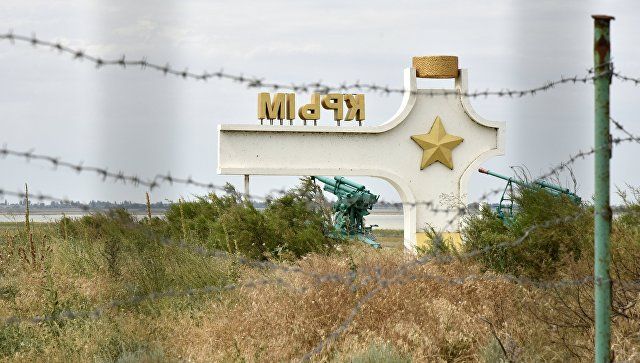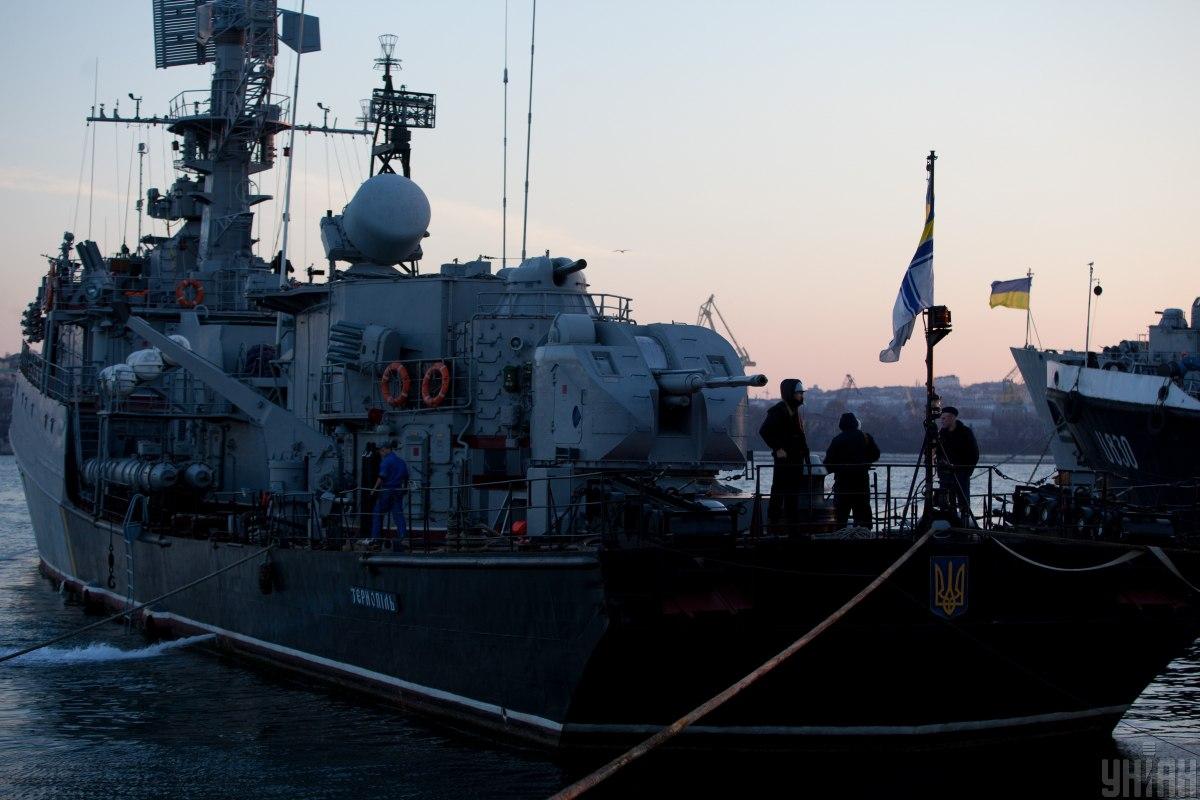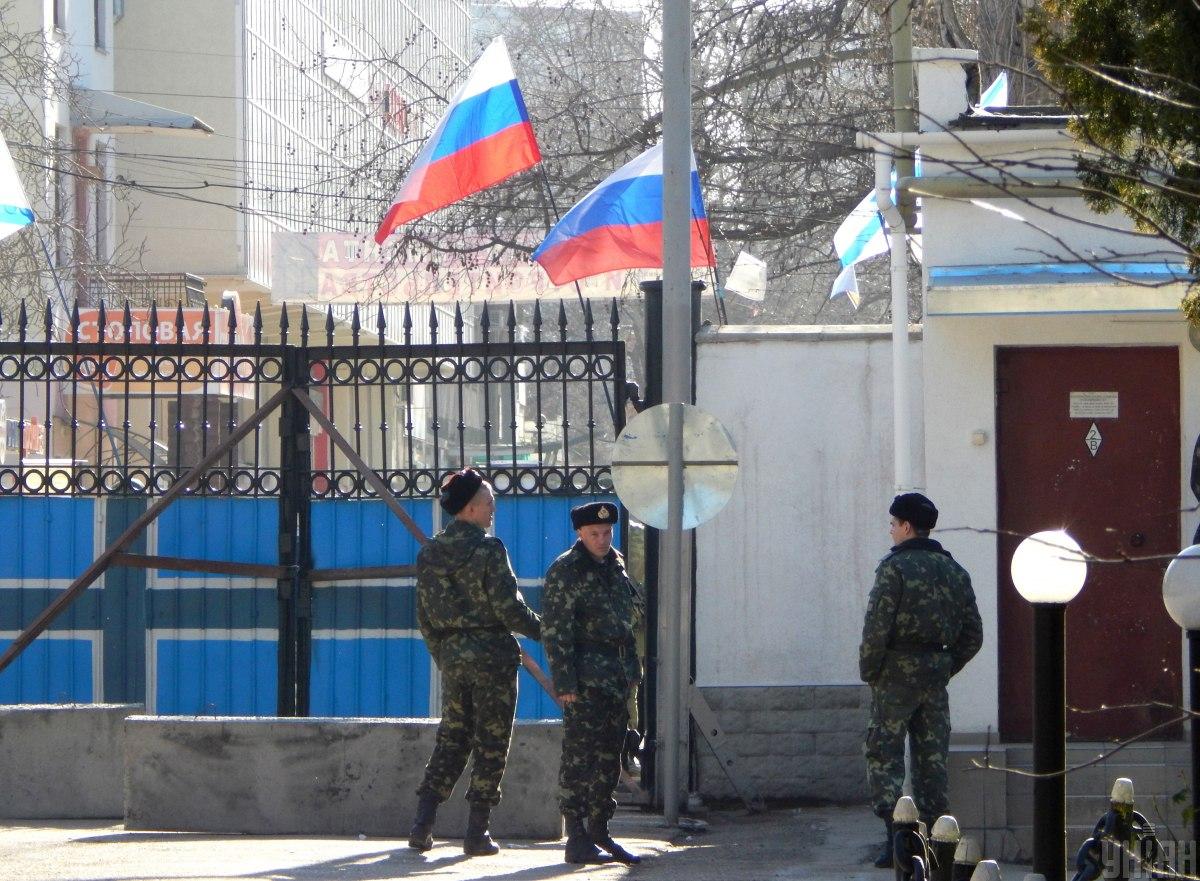
Fate of Crimea traitors: "They either quit, or serve in remote Russian regions"
Six years ago, not all Ukrainian military men left the annexed Crimea. Some of the servicemen, either in pursuit of high salaries and pensions, or because of support for the Kremlin’s imperial ideas, chose to side with the enemy. UNIAN found out what happened to those who then changed the oath.
When six years ago Russia began the annexation of Crimea, not all Ukrainian military, who were then stationed on the territory of the peninsula, intended to resist till the end. Some embraced the invaders. However, those who, without waiting for the Crimean pseudo-referendum, tore up and burn their Ukrainian passports on cameras, those who were convinced that betraying at the right moment isn't betraying at all but rather seeing the future clearly (in the end, they did not acknowledge themselves as traitors), later were forced to leave the peninsula – fleeing from bullying by their new colleagues. The high pension and "paradise" conditions turned out to be empty promises of the invaders.
"Everyone has already been reshuffled"
In 2015, the following figures were announced by the General Staff of the Armed Forces of Ukraine: of the 18,000 Ukrainian military in Crimea, about 14,000 remained on the peninsula. At the same time, in 2014, part of the servicemen quit, while the lion's share signed contracts with the occupiers.
"In the spring of 2014, we heard an ultimatum, being offered to surrender the Ternopol Corvette. Our commander Maksym Yemelianenko replied: "Russians do not give up." This was in all media. But in the end, he stayed in Crimea and is now serving on some kind of patrol ship. They told me that not so long ago some Russian admiral was boarding that ship and the first thing he said was: 'I better not see that Yemelianenko here again," says Lieutenant Vasyl Tymoshchuk, who served as a midshipman on the Ukrainian Navy's Ternopil Corvette in spring 2014".

He admits that among those who stayed in Crimea were those who he thought would never betray their allegiance.
"Our units were staffed according to the territorial principle, so two-thirds of the contracted servicemen were locals. This influenced their decision. But it was strange to hear from a guy from Zaporizhia such words: 'But what has Ukraine given me?' He flipped. He and others were promised high salaries and apartments. Plus, the invaders played people's fears, telling us: 'You surrendered your ship! You dropped your weapons! What do you think is awaiting you in Kyiv for this?' Indeed, we didn't know," continues Tymoshchuk.
In addition to wealth, traitors were promised promotion and service on new ships. However, they'd not been told they would be redeployed to Russia's far north and other regions far less comfortable than Crimea.
"I've been monitoring information about our former military. For six years no one has provided housing to low ranking officers. Their allowances never reached the level of their Russian colleagues. It did rise, but not as promised. And everyone has already been reshuffled. I know a soldier, Yevgeny, he served with the Marine Corps, Major, and in 2014 he flipped to the invaders. Three years later he was told that he would be deployed to serve in Transbaikalia. So he quit. Otherwise, he would be facing life behind closed doors in a secret base. There is a special military town in the forest where you can't take your kids to the movies. And his case isn't isolated. My former classmates either remained in the same positions, or quit, or serve in remote Russian regions," says an Ukrainian Army officer and blogger Anatoly Shtefan.
Only those remained who had appeared on TV
UNIAN's interlocutors say that, over time, some traitors voluntarily left Crimea because of higher allowances paid in the Russian Federation for service in remote regions. But there is another reason why many fled the peninsula. The fact is that former servicemen of the Armed Forces of Ukraine (Navy) began to be treated as second grade servicemen. There are many stories on the web about how they were addressed: "Come here, junk! We will make a nice Russian out of you!" A midshipman could be ordered to go mop floors, while a Russian soldier would command.

"They saw no respect. No one would obey orders of those officers, so many agreed to leave Crimea to where no one knew about their past. Those remained who had appeared on TV, pledging allegiance to Russia," says the former Assistant Commander of the Ternopil Corvette, now working at the Department of Sea and River Transport of Ukraine, Oleksiy Kirilov.
"In social networks, I saw messages: 'There is no life beyond Crimea. I quit without a pension, without anything.' And, as far as I know, the ceiling they can count on is becoming security guards,"adds Anatoly Shtefan.
However, some of the defectors tried to challenge Russian occupation authorities in... courts of the Russian Federation. On the website of "Judicial and normative acts of the Russian Federation" UNIAN found the story of a former serviceman Andrei Mishonov, who is trying get his pension through court. He has served for a total of over 15 years, but the court keeps rejecting his motions.
It is also curious that two years ago, as reports claim, occupation authorities in Crimea started to recall service apartments where government employees used to be living in. On the same site, "Judicial and normative acts of the Russian Federation," there's a story of a former Ukrainian soldier who in 2006 received a two-room service apartment, privatized it two years later, and has been living there with his wife and two children. This continued until 2016, when the defector's apartment actually became the property of the occupation authorities and the tenants lost litigation over it.
Not only sailors faced similar fate. "There were also SBU security operatives who thought they would be transferred to the FSB. They ended up working in branches across Crimea before gradually being fired. Getting a job with the FSB in mainland Russia was off the table. They are considered traitors. Even the invaders do not trust them," summarizes Anatoly Shtefan.
By the way, although their "new homeland" never accepted them, no one will be happy to accept such people in Ukraine, either, that's if they consider flipping back and "returning". Under Ukrainian law, they face prosecution for high treason.
Vlad Abramov

